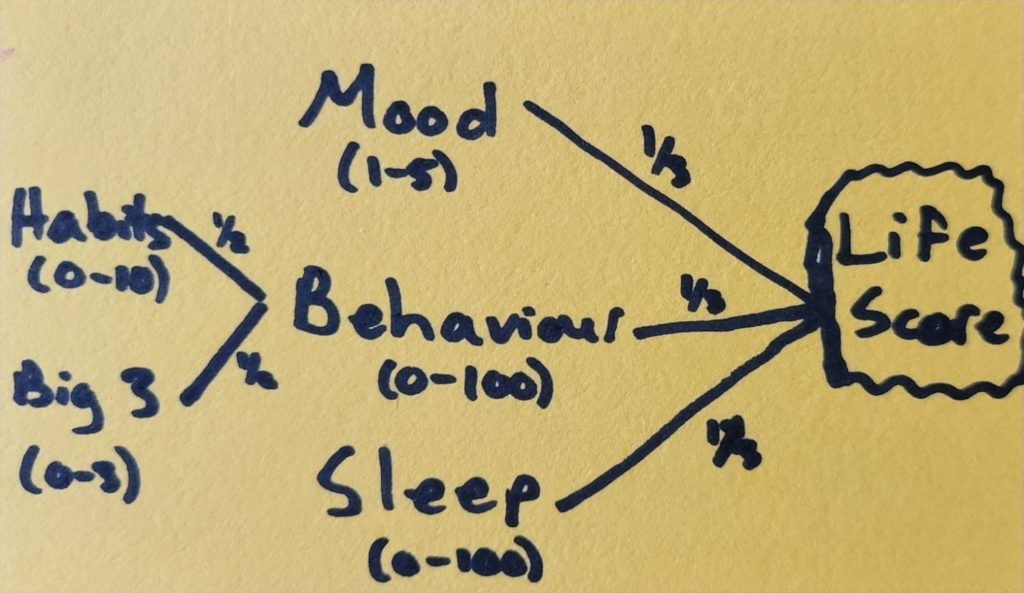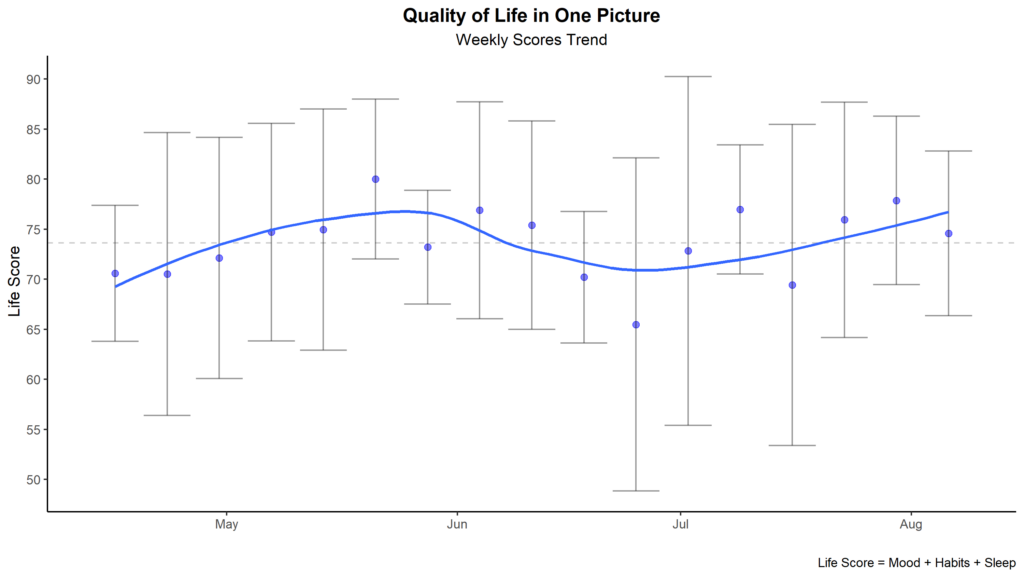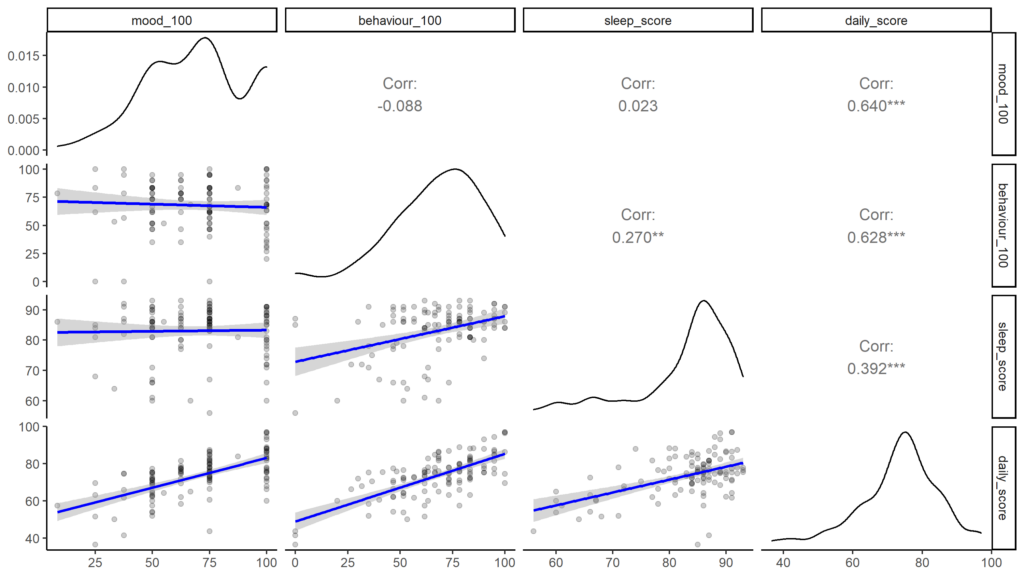We are what we repeatedly do. Excellence, then, is not an act, but a habit.
Aristotle
What is your Y-Axis?
How do you measure progress in your life? How can you determine if a new habit is moving the needle? What are the units of measurement of your needle gauge? Is it even a worthwhile pursuit to try to squish something as complex as a “life well lived” into a single number? Don’t we run the risk of over-simplification and over-optimizing for one metric at the expense of all others? It might be my love for numbers bias speaking but I came to conclude that the answer to all of these questions is: YES.
Sleep, mood, and daily habits are metrics that do a good enough job at catching most of the factors that contribute to my definition of a good life.
Mood
I use the Daylio app to keep track of my mood on a scale of 1-5 at the end of each day. I’ve documented what I’ve learned from tracking my mood for 1000+ days in this video. This score is intended to reflect the overall inner experience of my day. I can add multiple ratings per day and they’re going to average out to something that approximately represents the quality of that day.

Habits & Transcendent Behaviours

I also track the activities that I suspect have a large return on investment in the long haul (see the Big Rocks section of Figure 2). The Success section located at the bottom of Figure 2 tracks three transcendent behaviours that align with my vision of a successful day. This combination of habits and self-transcendent behaviours will serve as a component of the overall Life Score.
Sleep

I’ve concluded based on my qualitative and quantitative analyses that sleep is one of the main levers we can pull to reliably increase our chances to live a good life. I used to strictly track sleep subjectively as a binary variable in the Daylio app. Now I also track sleep objectively (with some error) using my Fitbit Inspire 2. Fitbit provides a sleep score (out of 100) based on sleep duration, sleep cycles, and heart rate data (as seen in Figure 3).
Putting It All Together

The Daylio mood ratings (1-5), the number of habits (0-10), and the number of transcendent behaviours (0-3) can be transformed to be on scale from 0-100. As seen in Figure 4, the scores can then be aggregated with the Fitbit sleep score to get an overall life score that ranges from 0 to 100.

We can see that my daily life scores over the last four months are normally distributed with a mean of roughly 75/100. This seems to make sense intuitively. Most days are pretty good with about the same number of awesome days and bad days. Note that the average of 75 means that there is more room to have a bad day than to have a good day.

Figure 6 indicates that the weekly averages hover around 75. It’ll be interesting to see if there is a cyclical nature to this graph once we get more data. The daily scores of some weeks vary more than others. It’s still not clear to me how variation of life scores might be a good thing. Do we really want a “perfect life” by scoring 100 on a daily basis?

It’s important to note that sleep, behaviour, and mood are not independent. It’s somewhat surprising to see no significant correlations between sleep and mood or mood and behaviour. There is a modest significant correlation between how well I slept the night before and how many habits are checked off the next day.
Furthermore, there are likely tradeoff relationships between the factors. For example, a cottage weekend with friends might lead to a higher mood at the expense of sleep and habits getting checked off. Getting good sleep and doing all the things every day might result in a lower mood since it might feel too robotic and predictable.
There are many ways to define a good life and this is my limited attempt. I hope that my life score metric is valid and will correlate with what I’ll think about my life when on my death bed.
An unexamined life is not worth living.
Socrates
Read This Next
- What I Learned from Tracking my Mood for 1000 days
- My 10-day Vipassana Silent Retreat Experience
- What is your Rich Life?
- Get To Good Enough & Move On
- Life is a Jar
- Cal Newport Was Wrong
- Three Questions for Success
- Atomic Habits Book Review
- The Do-Nothing Morning Routine Experiment
- Automate Your Finances
Affiliate Links
- Daylio App
- Fitbit Inspire 2
- Readwise
- Kindle
- Tao Te Ching – Lao Tzu (Translated by Stephen Mitchell)
- Atomic Habits – James Clear
- Stillness is the Key – Ryan Holiday
